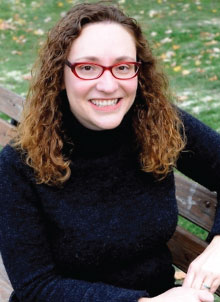Experts Share Advice for Post-Roe World: ‘We Have to Be Proactive’
Abstract
Since the Supreme Court’s decision in Dobbs v. Jackson Women’s Health Organization, many states have implemented bans on abortions that are either in effect or pending in court proceedings. As many women face the prospect of wanting but not being able to end a pregnancy, experts are urging psychiatrists to prepare themselves and their patients.
Before the landmark Supreme Court decision in Roe v. Wade, psychiatrists played a significant role in allowing women to access legal abortions. Because many states allowed abortions only when a woman’s life was severely at risk, psychiatrists could certify that a patient would take her own life unless the procedure was performed.
‘We Deal With Life and Death, Too’: Some States Remove MH From Abortion Ban Exceptions
Whether psychiatrists will again be in the position of certifying that women need abortions due to their mental health depends a lot on how states craft their abortion bans, said past APA President Paul Appelbaum, M.D.
Before Roe v. Wade, the states in which psychiatric indications were frequently used to access abortions tended to be liberal, such as California and New York, and these states are likely to keep abortion legal. With the Dobbs v. Jackson Women’s Health Organization decision, it is not clear when and under what circumstances psychiatrists could again be asked by patients to certify a psychiatric indication to legally access an abortion or how high the bar will be for such certifications. “For those states where psychiatric emergencies qualify for exceptions to the ban on abortions, my guess is that there will be a much higher index of suspicion about the legitimacy of such claims,” Appelbaum said.
Yet rather than the ethical dilemma psychiatrists were in before Roe, now they may find themselves shut out completely from the process of stepping in when their patients need an abortion to save their lives.
“Several states have explicitly excluded psychiatric emergencies from the scope of their exceptions from the ban when the life of the mother is at stake,” Appelbaum said. “That’s a cruel reaction that appears intended to prevent a recurrence of the pre-Roe situation—even potentially at the cost of the life of a woman whose pregnancy has led to suicidal intent.”
Two such states are Ohio and Oklahoma. In Oklahoma, the law allows abortions to save the life of the mother in a medical emergency, but “medical emergency” is specifically defined as a physical disorder, illness, or condition. In Ohio, the Heartbeat Law allows abortions to avoid the development of medical conditions that could cause “a serious risk of the substantial and irreversible impairment of a major bodily function” of the pregnant woman. In an explainer, Ohio Republican Attorney General David Yost explicitly noted that the law’s exception does not include conditions related to the mother’s mental health. As of press time, a judge had blocked Ohio’s abortion ban.
“The deliberate exclusion of psychiatric conditions that may threaten the life of the pregnant woman is cruel beyond measure and likely to lead to needless deaths and knock-on suffering,” Appelbaum said.
“When is your life at stake?” posited past APA President Nada Stotland, M.D. “How bled out does a woman have to be before an OB/GYN can save her life? Are cancer doctors going to delay lifesaving treatment for a woman because she’s pregnant, when getting the drugs now would drastically improve her chances of survival? As psychiatrists, these laws also put us in terrible positions. What happens if one of our patients is suicidal because she is pregnant? We deal with life and death, too.”
“Psychiatrists became the major conduit through which legal abortions could be obtained,” past APA President Paul Appelbaum, M.D., wrote in a column published in 1992 in Hospital and Community Psychiatry (now Psychiatric Services). Psychiatrists often found themselves in the position of choosing between telling the truth about a woman’s mental state and preventing her from obtaining a legal abortion or lying so she could receive the medical procedure (see box).
“Roe extracted psychiatry as a whole from an ethical morass,” Appelbaum wrote. “Its possible demise will not be pleasant.”
Whether the Supreme Court’s decision in Dobbs v. Jackson Women’s Health Organization (APA Responds to End of Roe v. Wade) will thrust psychiatrists back into the uncertain ethical territory in which they found themselves before Roe is yet to be seen, Appelbaum told Psychiatric News. Regardless, experts agree that the Dobbs decision, which overturned Roe, may intimately impact how psychiatrists practice.
Being Proactive Is Imperative
“As a reproductive psychiatrist, one of the things I’m always stressing to my general psychiatry colleagues is that pregnancy is very much in the psychiatrist’s wheelhouse, and thus so is abortion,” said Susan Hatters-Friedman, M.D., the Phillip J. Resnick Professor of Forensic Psychiatry; professor of psychiatry, pediatrics, and reproductive biology; and an adjunct professor of law at Case Western Reserve University. She is also the president of the American Academy of Psychiatry and the Law.

Women with serious mental illnesses already have a higher bar for accessing abortion services compared with other patients, says Susan Hatters-Friedman, M.D. Sometimes abortion providers learn that a patient has a mental illness and asks for a letter from her psychiatrist certifying that she has the capacity to make a decision about the abortion. “The overwhelming number of people with mental illness have the capacity to make a medical decision,” Hatters-Friedman says.
She urged all her fellow psychiatrists to think now about how they will help their patients navigate the post-Roe world. “We have to be proactive.”
As of November 21, at least 13 states had banned abortion, according to The New York Times. Some states have bans that have been temporarily blocked by courts. Even in states where abortion remains legal, experts warn that the bans in other states will impact access to care as more women travel across state lines to access the service.
One of the first and most obvious ways psychiatrists can support their female patients is to ensure their medications are still considered safe to take during pregnancy, according to Hatters-Friedman. “The last thing that we as psychiatrists want to do is make our patients worry that they need to get an abortion if they become pregnant because of the medications they’re taking,” she said. Patients who have been referred to her are commonly on four medications at once, and patients in that position may feel that abortion is their only option. There are numerous psychiatric medications that are safe for women to take during pregnancy.
Polypharmacy can also be risky, Hatters-Friedman noted. “Maybe we have studied how taking drug A or taking drug B can impact pregnancy, but we haven’t studied what they do when taken together,” she said.
Further, Hatters-Friedman emphasized that psychiatrists should talk with their patients about their sexual activity and contraceptive use, ensuring patients understand the full picture of what it would mean should they become pregnant.
Psychiatrists can go one step further as well and prescribe patients an emergency contraceptive, such as Plan B, that they can keep at home just in case they need it, Hatters-Friedman said.
Prepare to Counsel Patients on Their Decisions

Nada Stotland, M.D., advises psychiatrists to think ahead of time about what they will do if one of their patients shares her desire and intention to receive an abortion. “You need to know exactly what the laws are where you are, and sometimes they will change week to week,” she says.
For patients who do find themselves pregnant and faced with a choice, past APA President Nada Stotland, M.D., and Hatters-Friedman emphasized that psychiatrists must keep their own biases and moral or religious views separate from their professional and ethical responsibilities. All that psychiatrists must concern themselves with is helping the patient to make the decision that feels right to her.
Stotland advised soliciting the patient’s views and relevant past experiences. “Has she had an abortion before, or does she have a friend or relative who has gone through it, and what was that like?” she said. Finding out the patient’s moral beliefs is especially important, as is reviewing her current circumstances and exploring what may be causing any ambiguity she is experiencing. “Some patients won’t know what they want to do, and some ambivalence is within the realm of normal,” Stotland said, though she noted that the majority of patients do know what they want to do.
“We have to remember that there is no wrong choice,” she continued. “The patient might have seven children and not another penny to her name. She might have a psychopathology, and you dread the idea of her having a baby. But that’s not your business. It’s your business to help her reflect on what decision she thinks is right.”
Know the Laws Around Abortion Bans
The legislation that states have passed or introduced since Dobbs can be confusing and cast uncertainty over even what conversations psychiatrists can have with their patients. For the most part, however, patient-physician confidentiality is largely still constitutionally protected, said Jessie Hill, J.D., associate dean for research and faculty development and the Judge Ben C. Green Professor of Law at Case Western Reserve University School of Law. She previously worked at the Reproductive Freedom Project of the national ACLU office in New York.

“[Dobbs] impacts many people,” said Jacqueline Landess, M.D., J.D. “It’s not just impacting women of reproductive age. It’s impacting the partner of a woman seeking a termination and the children that woman already has. It’s impacting women who are trying to become pregnant because they are worried about potential problems in their pregnancies and not being able to receive safe abortion care.”
Hill added that there is some “especially draconian” legislation, such as Texas’s law and a bill in South Carolina, that does try to regulate free speech around abortion, but those laws already have been or are likely to be challenged in court.
Jacqueline Landess, M.D., J.D., the training director of the Forensic Psychiatry Fellowship at the Medical College of Wisconsin, urged caution to psychiatrists who are practicing in states with so-called “fetal personhood” laws. These laws essentially give a fetus the rights of a person. Five states have passed fetal personhood laws, but they were struck down or are enjoined in courts in most of those states, according to The New York Times.
Confidentiality in the patient/physician relationship has some very well-known exceptions, including instances when patients who make statements about wanting to harm other people or themselves. In states with fetal personhood laws, the law could mean that expressing an intent or desire to terminate a pregnancy would constitute the expressed intent of harming another person, Landess explained.
“It is really going to depend on the state and how the law is written, and in those cases, psychiatrists should consult with their malpractice carriers because [they could] legally have a duty to warn or protect,” Landess said. “This may seem far-fetched, but it’s a strong possibility if fetuses are granted legal personhood status. Ideally, providers should inform patients of any exceptions to confidentiality at the outset of treatment.”
Another tricky legal gray area could be providing information to patients about accessing services that may not be legal where they are being provided, Hill said. Some internet services allow patients to get abortion medications through the mail, and that could be a more legally fraught area for physicians because those services are themselves operating in legal gray areas in some states.
“This is really scary for providers,” Hill said. In her work, she has met abortion providers who are essentially legal experts as well. They know the laws intimately and are very conscious of potential criminal penalties. “Now, we have emergency physicians and psychiatrists and others who are adjacent to OB/GYNs who are potentially swept into the web of these laws,” she said.
‘It’s Going to Break Our Hearts’
All the experts interviewed for this article emphasized that it is essential for psychiatrists to know the laws around abortion in their states and prepare to help patients who cannot access a wanted abortion.
“Psychiatrists who work in states with laws banning abortion should stay up to date on the scope, if any, of psychiatric exceptions and should familiarize themselves with the literature on the mental health consequences of unwanted pregnancies,” Appelbaum told Psychiatric News in an email. “Women who cannot obtain abortions and are forced to carry their pregnancies to term will need support and, in some cases, sophisticated psychiatric treatment.”
The Guttmacher Institute has an interactive map on its website that is regularly updated with details of each state’s laws regarding abortions. The New York Times has a similar, live tracker of the states whose bans are in effect and states that have had their bans temporarily blocked by the courts.
Psychiatrists will also have to deal with their own feelings related to the lack of access to abortions, Stotland said. “In the states that ban abortions, things are going to get really tough,” she said. “We will see that our patients in our community mental health centers or our public hospitals need abortions. We will see them try to get the money together to go three states over, while figuring out: Who will take care of the children they have at home? How will they keep their jobs? Where do they stay while they’re there? And then there will be a waiting list, and they might end up waiting into the second or third trimester, and it will be too late. It’s going to break our hearts, and that’s the country we’re living in right now.” ■



